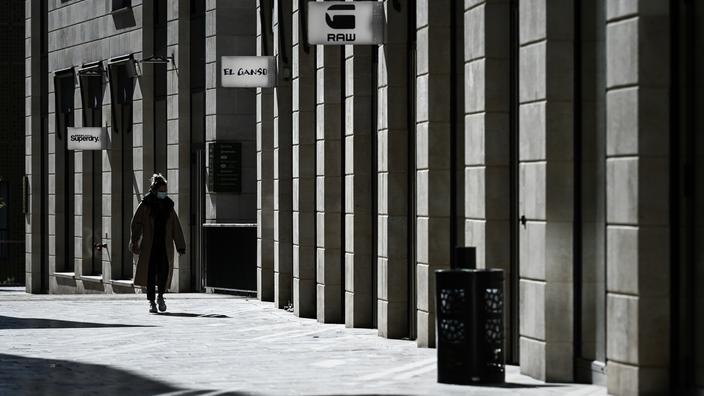More than seven million French people are isolated, having only occasional social relations, according to a study by the Fondation de France published on Friday, December 4, which is worried about a phenomenon on the rise, now also affecting young people.
Read also: Mental health: does confinement make you sick?
"
Loneliness in France has increased over the past 10 years
", since it now concerns 14% of the population, against 9% in 2010, the Fondation de France is alarmed in its 10th annual report on loneliness .
People who say they have very little face-to-face contact (at best, a few times a year)
are considered “
isolated
” with members of their family, friends, neighbors, work colleagues or acquaintances from associative networks.
The members of the household are not taken into account here: one can therefore be isolated, even if one does not live alone.
According to this study, carried out by Crédoc on a sample of 3,000 people over the age of 15, the elderly and the less well-off are the most isolated, but the phenomenon increasingly concerns all categories of the population, and now even young people: 13% of 18-29 year olds are isolated, against only 2% ten years ago.
This "
colossal
"
progression
of the isolation of young people shows that "
the digital link does not replace meeting with others
", commented on RTL the director general of the Fondation de France, Axelle Davezac.
This also highlights the difficulties young adults have in accessing housing, employment and mobility in rural areas.
“
Many young people do not have this capacity to move, to leave their homes, their villages, the place where they live
”, and “
withdraw, because the gaze of others is terrible
” and that “
because of social networks, it is all the more important to have friends, to be inserted in relational networks
, ”she analyzed.
A “
vicious circle
” then
sets in
, which leads to a “
feeling of distrust
” towards others, according to Davezac.
All generations combined, the study thus reveals “
the extension of a general climate of mistrust and suspicion
”.
Only 33% of those polled say that “
in general, it is possible to trust others
”, which is 13 points less than in 2012.
People who were already isolated before the first spring confinement seem to have lived this period less badly than the general population: 24% say that they did not miss any of the social interactions, against 9% of non-isolated people.
No doubt they were able to experience this crisis as a "
period of respite
" in the face of "
social injunctions to which they do not respond
", suppose the authors of the study.
>> SEE ALSO -
Olivier Véran evokes a "significant" deterioration in the mental health of the French

